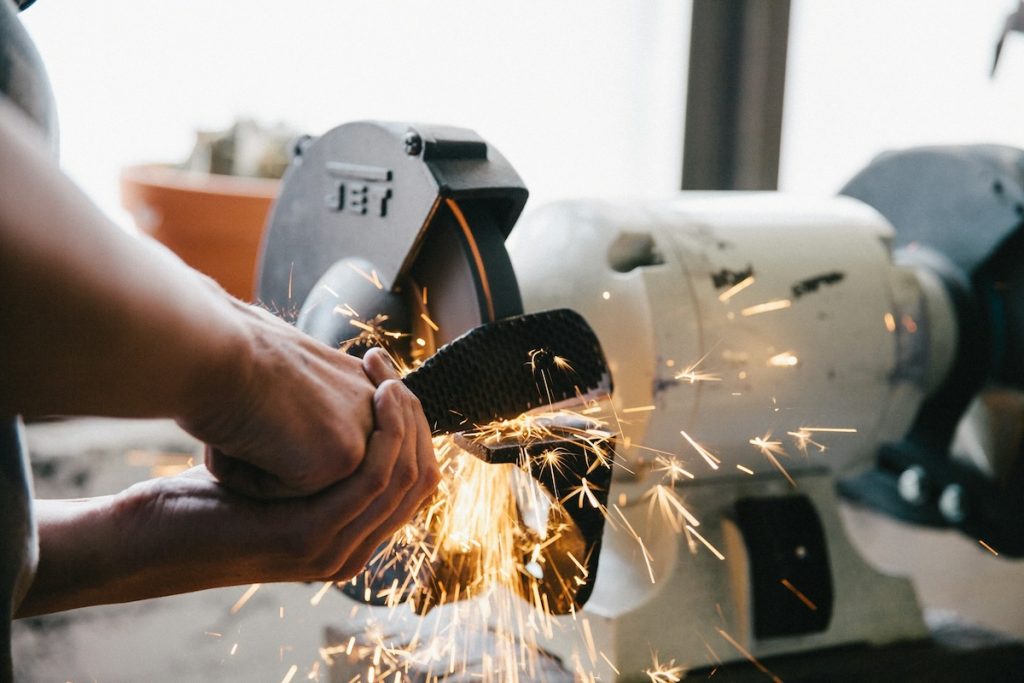Do you own a construction or excavation firm? If yes, your employees likely use heavy machinery and precision instruments daily. Finding the right equipment is very important, otherwise, employee performance is going to drop. Low-quality tools can also be dangerous. Unfortunately, with so many different products on the market, it can be difficult deciding which ones to buy. This post will explore this topic in more detail, telling you six practical tips that you can use to find the right heavy machines and precision tools for your company.
Think About Use
The very first thing you need to do if you are looking for heavy machinery and precision instruments for your business is to think about use. What are your employees going to be using tools for? If they lift heavy objects, a forklift could come in handy, for example. Attachments are also worth thinking about. Do employees need access to earthmoving attachments or buckets? Also consider the safety of your workers. Most of the equipment they would be working with have certain protocols or gear to ensure their safety. For example, for welding jobs, they would need durable and compatible welding lenses, such as those found at Ridge Products Welding, that auto-darken, while being super clear to protect the eyes and enhance view. If you have little involvement with your employees and have managers overseeing them, consider going to one of the sites your company is working on and speaking to employees personally. Speaking to employees yourself can be a great way to improve your reputation with them and determine the tools your company needs. Getting to know employees also gives you an opportunity to identify the highest achievers and hardest workers, making it easier to decide who to promote in the future.
Inspect History
Once you know what machines and tools your employees work with, the next step is to go out and shop. Selecting equipment isn’t something you should rush, though. Make sure that you carefully inspect each machine or tool and investigate its history. Typically, heavy machinery and precision tools are sold used, i.e., they have been employed by other companies in the past. Often, there are no issues with used tools, and they are as good as brand-new ones. Of course, if you have a large budget, you can buy new tools directly from manufacturers. If costs are of concern to you and you plan on buying products that have been used in the past, make sure you source them from vendors with good reviews and solid reputations. More than that, ensure the equipment hasn’t been overused. Ask for the specific tool’s history and the names of the companies that have used it in the past.
Find Dealers
Finding dealers to work with can be difficult. There are lots of companies offering heavy machinery and precision tools for sale. As mentioned in the previous section, you need to find a dealer with good reviews and a strong reputation in their industry. Reviews are always worth reading because they give you insight into what working with a dealer is going to be like. In addition to reviews, make sure they are licensed to sell construction equipment. In many countries, you need a special license to sell equipment that’s used for construction or excavation. This is because the tools employed in these industries can be very dangerous if they aren’t used correctly or haven’t been properly maintained. A company’s licensing status can be found on their website. Finally, try to find dealers who are partnered with the manufacturers of the products that they sell.
Mechanical Inspections
No matter how good a dealer’s reviews are, you need to make sure that you perform mechanical inspections on each and every machine you plan on buying from them. Obviously, you are going to need to enlist a professional’s help for this. The chances are that you are not going to be able to perform inspections yourself. You can either bring one of your employees along to inspections or you can hire somebody who’s experienced in working on and repairing the machines you are checking out. The latter is probably better since they will be in a better position to identify faults than somebody who’s just used to using machines, not looking at their internal components. Make sure the person you bring is independent and has no connection to the company you are buying equipment from. The reason you need somebody who’s independent is so you don’t have to worry about biased feedback.
Regular Maintenance
You need to make sure that you find out how to maintain the equipment that you are buying before you pay for it. This is especially true if you aren’t physically present on construction yards with your employees. Your staff needs to be trained in how to maintain and operate machinery properly. A good way to do this is to pay for employees to take courses or to make certain qualifications a prerequisite to hiring. Finding out how to maintain equipment from the dealer is a very good way of ensuring your company’s machines and tools aren’t misused. Once you have received instructions on maintenance from the dealer, make sure that you then give this information to your employees. If tools are not properly maintained, they will deteriorate a lot faster, costing your company money (since you’ll then have to buy equipment again).
Calculating Budget
Finally, work out a budget. Heavy machinery and precision instruments are not cheap by any stretch of the imagination. In fact, some of them can cost obscene amounts of money. Work out how much disposable income your business has so that you can then commit it to buying new tools. While tools and machinery are expensive, they will make you money. Without them, employees are not going to be able to do their jobs properly, meaning clients aren’t going to want to work with you. If you are on a very tight budget, buy used equipment. Of course, still, ensure that inspections are performed and that the internal components of the used machines you are buying are working properly. Once you have worked out a budget, you can then begin searching for machines that fall within it. Telling a dealer what your budget is will help them to find the right tools for you.
Running a construction business can be challenging. One of the most difficult things about managing a business of this kind is sourcing quality equipment. Fortunately, the guidance given here can help you to do this. Make sure you extensively research all tools before buying them so that your employees only have the best to work with.


